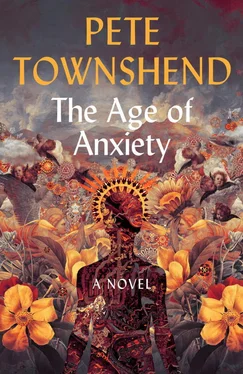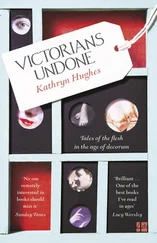The way the upper floor was arranged confirmed my suspicion that Rain and Siobhan were lovers. There was evidence of two women living together: two sets of clothing strewn around carelessly, and in the bathroom two toothbrushes, one electric, Rain’s preference. Siobhan’s behavior with Rain was affectionate and intimate, like a doting and patronizing aunt perhaps, but also slightly lascivious. At least that’s how it all seemed to me.
At the top of the staircase the entire floor opened up. A massive double bed, again strewn with cushions, took up one end of the room and had been raised on a plinth so its occupants could see the view of the distant estuary while lying back. The bathroom was a part of the bedroom, the tub in the middle at one end, with an open shower tray to one side, and a small toilet in a semi-enclosed area to the other with a sink where I’d spotted the toothbrushes.
Of course, I would have felt very uncomfortable interrogating my own daughter about her sexuality. Rain was no great beauty, I suppose, but she had a very good figure, and a strong presence, lovely eyes and a wide mouth. I knew from her mother Pamela that some men’s sexual insatiability is unequal to that of certain women. We blokes literally run out of blood, we fail to swell after a time; such troubles are never a problem for a healthy woman. Rain was not Pamela, but may well have wanted more than she got from her first few male lovers.
As I looked around the bedroom, the inevitable question to my daughter was on my lips: Have you found someone, at last, that doesn’t stop?
Siobhan joined us, as if to deflect my rather tacky curiosity, and as I looked up after bending to look out at the sea, she was standing with her arm linked with Rain’s.
The message I received, right or wrong, had at the time been very clear.
Your daughter is mine now. This is where we sleep, and roll, and spoon, and sometimes things go much further.
Fifteen years had passed. Fifteen years earlier, Floss had walked into Dingwalls very soon after Siobhan had walked out. Walter had met Floss and married her. In the interim I had sold painting after painting, making the most money from Old Nik’s extraordinary, visionary work. Walter worked in his garden, the maze becoming ever more dense as the years passed. Floss grew her equestrian business with Ronnie into a hugely lucrative concern. Ronnie and Floss spent a lot of time together, which was still the subject of some gossip, born back in the days when they ran the riding stable in Sheen. But with their later venture, one lucky thoroughbred colt they entered into a race at Newbury won by a mile and was sold for stud for several million pounds to an Arab from Dubai. The colt’s progeny went on to become winners themselves. As Walter’s money ran out, Floss’s filled the void.
Walter still contacted me occasionally and we got together to catch up a few times over that period. He said that from time to time he tried to make music based on his writings from the days when he started hearing the anxious thoughts of the front-row audience at Dingwalls. But he rarely heard the kind of disturbing sounds he’d heard back then. He was beginning to get out and about too, getting to know some of his neighbors. Sometimes he had a chat with the Iraqi fellow who ran the local convenience store. His name happened to be Hussein, which he told Walter was incredibly common among Muslims.
In the autumn of 2011 Walter came to visit me to ask what I thought he should do to celebrate his fifteenth wedding anniversary. I recommended flowers and he ordered them by phone.
“Fifteen years! That’s lovely,” cooed the woman in the florist’s. “So what have you been up to in your retirement? Don’t you miss the band?”
“Yes, I do miss it, but I’ve moved back to my first career. I’m a garden designer. It’s inspiring. Creative.”
“I hope you still do music,” she insisted.
“I still hear it!”
Politely fielding the woman’s questions, Walter laughed, ordering the pale pink peonies that he knew Floss adored. But as he put the phone down, he seemed to feel a wave of anxiety sweep over him. He asked if I would spend an hour with him.
We went for a walk together in Richmond Park, and I tried to comfort him. At the same time what he told me filled me with an excitement that I found hard to contain; after the fallow period of fifteen years, in which he had concentrated on gardening while Floss got on with her equestrian business, Walter was now hearing music again.
The soundscapes were back. Was Walter now going to return to the music business?
What I heard him tell the woman from the flower shop was that he was doing some creative work at home. Up until that moment he had convinced himself that was precisely what he was not doing. By gardening he had felt he was avoiding creativity and art, dealing only with the soil and the elements.
As Walter began to describe what felt to him like a crash, I began to fly a little. After all, I live by the madness of others, and my own madness had yet to be redeemed.
“I hear what people are thinking,” Walter said quietly as we slowly walked along the sandy bridle path near Richmond Gate, where Floss occasionally rode Dragon, her favorite Highland pony. Not a good horse for dressage, but sporting an extravagantly long “blond” mane, just like she had once worn. And he could jump pretty well.
“Walter,” I reminded him, “you spoke to Nik about all this, not to me. You explained what you were hearing to him.”
“Every morning I walk to the main road to buy milk and a chocolate bar from my friend Hussein,” he said. He smiled his handsome grin and looked at me, pausing for a moment. “Got to keep my energy up.”
He produced a sheet of paper. At first sight it looked like a kind of manifesto with short paragraphs. He handed it to me.
“Is this for me to keep?” I was pleased to be trusted again. It had been a while.
Walter nodded. “My face is familiar enough locally, to people who saw me perform, or know my face from the papers fifteen years back, or documentaries on the telly—whatever—and they chat to me. They seem to feel I am a friend. It’s wonderful in a way. It makes me feel as if I live in a small village. Or I overhear them talking to Hussein. Later, I write down what they say. Sometimes, before they speak, I can already hear and feel what they are concerned about, I can hear it as sound. Everyone is worried, Louis. Frightened.”
“Fear is the normal human condition, Walter,” I said, turning the page over. “So this writing is not a description of what you’ve been hearing?”
“What I hear is much harder to describe. I don’t think I’ll ever be able to compose music that comes close to it; some of these paragraphs connect with what I hear and some don’t.” He tapped the page I held in my hand as he spoke.
We crossed the busy road and walked toward Petersham, and then in Richmond Park sat on a bench that allowed a view of St. Paul’s Cathedral eight miles away in the City, just visible through the haze. I began to read. The title of the page was written in longhand, using an old-fashioned pen: “The people behind the soundscapes”; the rest was printed from a computer.
I worry about the planet, this strange weather.
When I wake up I feel my dreams must have been disturbing, but I can remember so little.
I find it so hard to reconcile the gentle Christian beliefs I know you’ve all been taught with the violent demands of the hardline Muslim clerics at our local mosque. Why should my kids have to face all that intimidation, those threats and censure? They haven’t done any wrong, at least not yet.
How can music and dancing be wrong? Surely they are expressions of the heart?
Читать дальше












